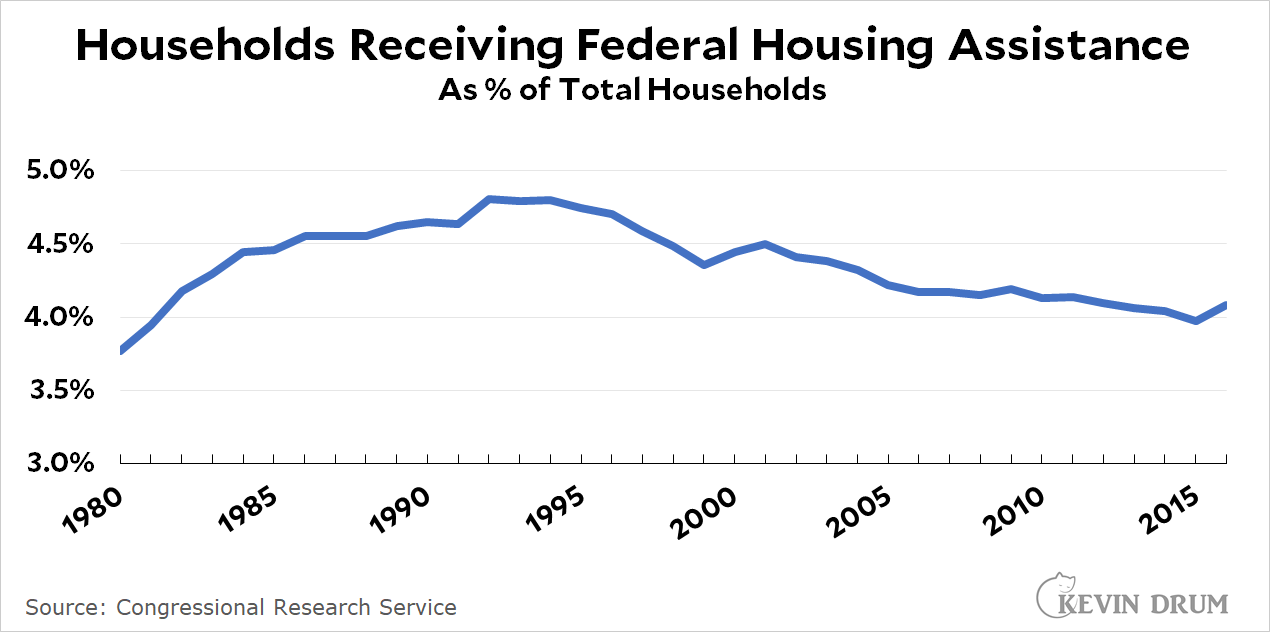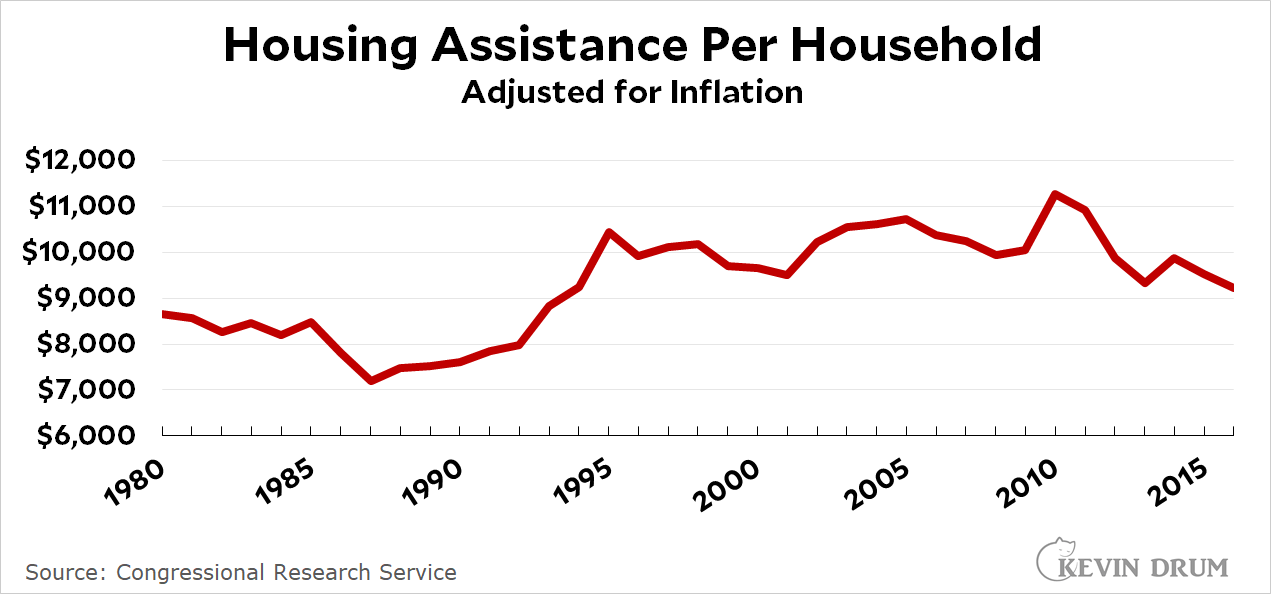Federal housing assistance has long been a troubled program. For the past few decades it has helped a steady 5 million households per year even as the US population has grown. This naturally represents a dwindling percentage of all households:

The decline in the share of households receiving assistance is not due to lack of need. It's due to lack of funding. Section 8 vouchers, in particular, are enormously backlogged and have a waiting time of years to get on board.
The amount of assistance has risen since 1980, but since 1995 has flattened out at about $10,000 per household:

Republicans have been effective at blocking higher levels of housing assistance, probably because there's also a strong constituency of landlords who dislike it. This is obviously unfortunate since the cost of housing has increased significantly over the past 20 years and has become an ever larger burden for low-income households.
All data comes from a 2019 CRS report.

“Republicans have been effective at blocking higher levels of housing assistance, probably because there's also a strong constituency of landlords who dislike it.”
Don’t kid yourself. Look at the ACA which has a strong constituency of general voters who hate it, even if they themselves would personally benefit from it… and *especially* if they themselves don’t financially benefit from it but they see or hear of others financially benefiting from it. Resentment of others’ good fortune is strong in Americans, and usually leads to a desire to pull those people back down rather than lift everyone else up to their level. I wouldn’t be surprised if millions of poor and middle class people - not just landlords - hate explicit* housing assistance because they themselves can’t get any of it.
*Of course, hidden housing subsidies like the mortgage interest deduction are beloved by the middle class because “we earned it.” Same with hidden health insurance subsidies that encourage employers to offer health insurance - “we earned those too.”
The tax subsidies for health insurance are a benefit to the employee (who is not taxed on the premiums his employer pays as he would be on wages) but do not benefit the employer, since neither wages nor benefits figure in profits on which business income is taxed.
I know it would be unpopular among existing homeowners and landlords, but public policy at all levels of government really should be aimed at reducing housing costs. There is no good reason why "the cost of housing has increased significantly over the past 20 years and has become an ever larger burden for low-income households".
I doubt that landlords hate the actual idea of rental assistance so much as landlords just don't like the regulatory hassles the HCVs impose - which are mostly imposed a result of the insistence of the anti-waste/fraud republicans who think that some large proportion of HCV holders are cheating the system. And those in middle class neighborhoods don't want to get on the bad side of neighborhood defenders who might flip out at low income folks moving in with assistance. It's straightforward to get landlords on board if you actually want to- reduce the administrative burden for both the landlords and the tenants then upzone more neighborhoods with lower parking regulations so that there are more landlords competing with each other for tenants at the same rents that the HCV holders can offer. Otherwise we're stuck in the current negative outcome where in many places the only units HCV holders can get are in bad neighborhoods with landlords who do the minimum and then are only held responsible by housing quality standards rather than the voucher holders being able to pick better units.